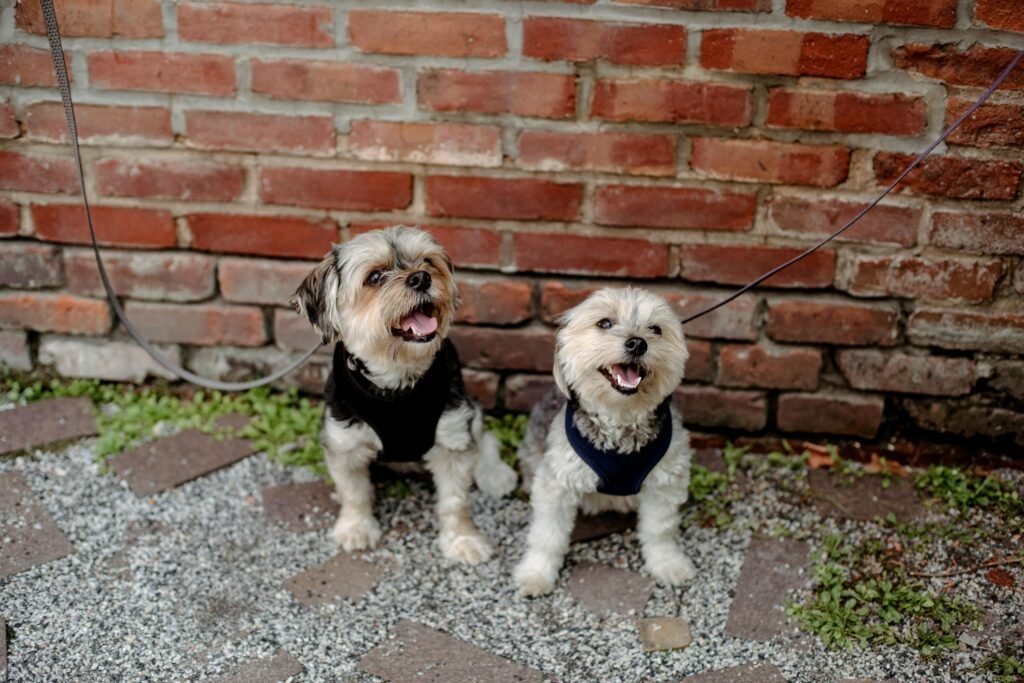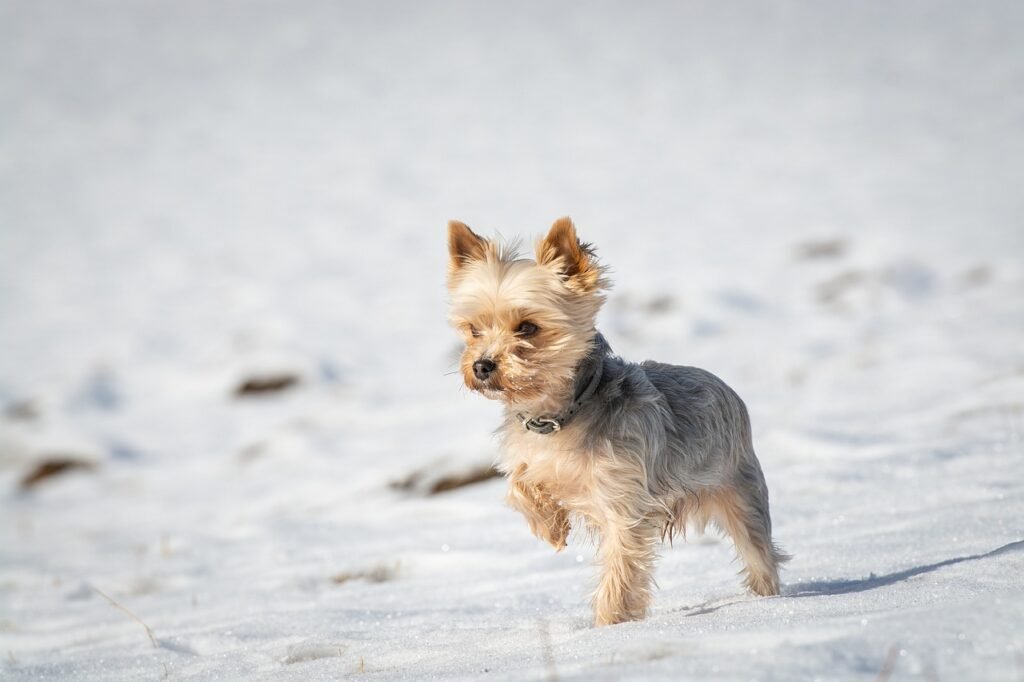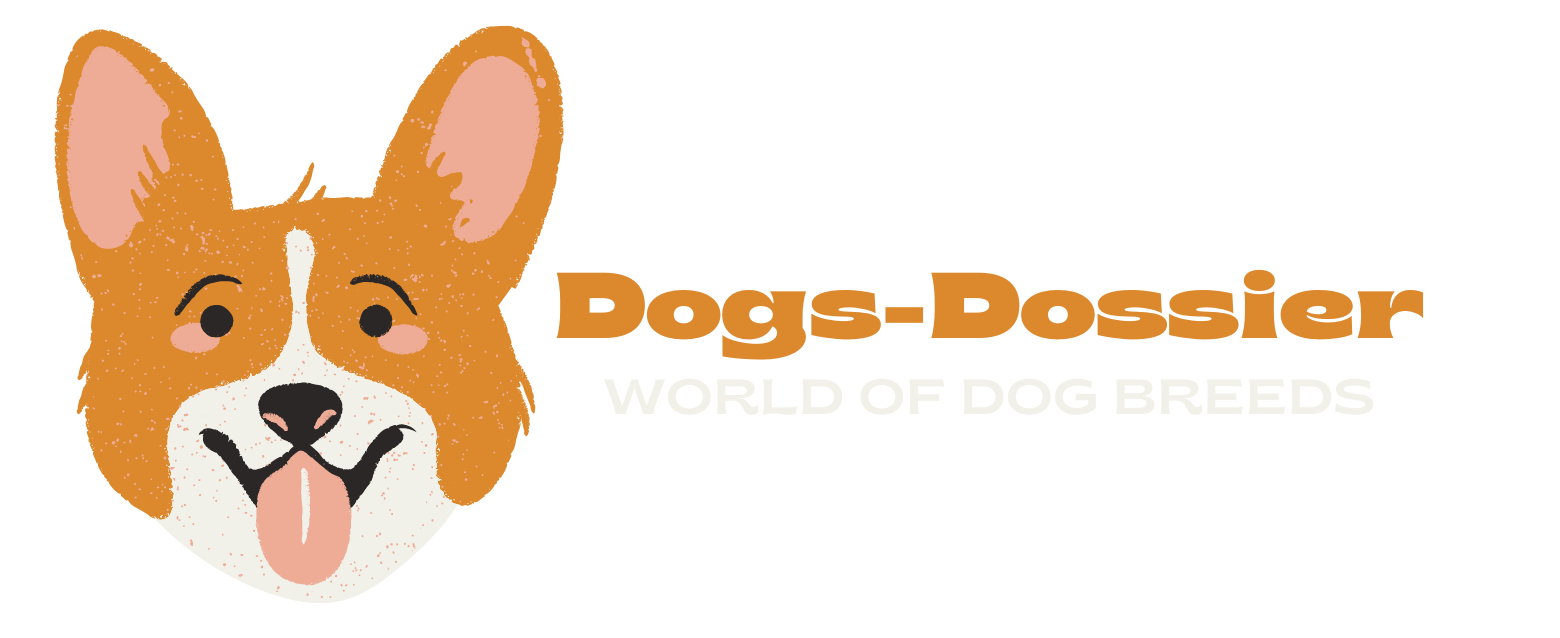Are Yorkies Aggressive Dogs? What You Need to Know About Yorkie Temperament and Behavior
Yorkshire Terriers, or Yorkies, are adored for their small stature and big personalities.
However, there’s a lingering question among potential and current Yorkie owners: Are Yorkies aggressive dogs?
This article will delve into the temperament of Yorkies, the factors that may influence aggression, and how to manage and mitigate any aggressive tendencies.
Understanding Yorkie Temperament
What Are Yorkies Known For?
Yorkies, or Yorkshire Terriers, are known for their small size and big personalities. Despite their diminutive stature, they exhibit a bold and confident demeanor, often described as feisty and spirited.
They are incredibly loyal and affectionate, forming strong bonds with their owners. Yorkies are also known for their intelligence and curiosity, which makes them quick learners but sometimes a bit stubborn.
Their beautiful, silky coats and lively expressions add to their charm. Additionally, they have a protective nature, often acting as little watchdogs, alerting their owners to any unusual activity. This combination of traits makes them both endearing and sometimes challenging pets.

Are Yorkies Aggressive Dogs?
Yorkies can exhibit aggression, but they are not inherently aggressive dogs. Their behavior is influenced by genetics, socialization, training, and environmental factors. With proper care, training, and early socialization, Yorkies can be friendly, well-behaved companions.
However, it’s essential to address any signs of aggression promptly through positive reinforcement training and, if necessary, consulting a veterinarian or professional trainer. Overall, while Yorkies may display aggressive tendencies, they can be loving and loyal pets with the right guidance and environment.
Factors Influencing Aggression
Genetics and Breeding
Genetics play a significant role in shaping a Yorkie’s temperament. Dogs bred from parents with aggressive tendencies are more likely to inherit those traits. Responsible breeders focus on selecting dogs with stable, friendly temperaments to minimize the risk of aggression in their puppies.
Proper breeding practices ensure that health and behavior are prioritized, reducing the likelihood of passing on undesirable traits.
Additionally, understanding the genetic background of a Yorkie can help predict potential behavioral issues. Breeding for positive traits such as sociability and calmness contributes to producing well-adjusted, non-aggressive Yorkies. Thus, selecting a reputable breeder is crucial for those seeking a well-behaved companion.
Socialization and Training
Socialization involves exposing your Yorkie to various environments, people, and other animals from a young age. This exposure helps them become well-rounded and less likely to react aggressively out of fear or unfamiliarity. Positive experiences during socialization can make a Yorkie more confident and friendly.
Training is equally important. Teaching your Yorkie basic commands and proper behavior sets clear expectations and boundaries. Consistent training helps them understand what is acceptable, reducing frustration and potential aggression. Positive reinforcement techniques, such as rewarding good behavior with treats and praise, are particularly effective.
Both socialization and training should begin early and continue throughout your Yorkie’s life to reinforce good behavior and adaptability. This ongoing process ensures that your Yorkie remains a well-behaved and pleasant companion.
Signs of Aggression in Yorkies
Physical Signs
Recognizing the physical signs of aggression in Yorkies is crucial for early intervention and management. Here are some key indicators:
Growling and Snarling: A Yorkie may produce low, threatening growls or snarl to warn of potential aggression.
Showing Teeth: Baring teeth is a clear signal that the dog is feeling threatened or aggressive.
Stiff Posture: An aggressive Yorkie often adopts a rigid, tense stance, ready to react.
Pinned Back Ears: Ears flattened against the head can indicate fear or aggression.
Raised Hackles: The fur along the dog’s back may stand up, showing heightened arousal and readiness to defend itself.
Importance of Ongoing Socialization
Socialization shouldn’t stop after puppyhood. Continuously exposing your Yorkie to new experiences can help maintain their social skills and reduce the likelihood of aggression.
Training Techniques to Mitigate Aggression
Positive Reinforcement
Positive reinforcement is a highly effective training technique for mitigating aggression in Yorkies. This approach focuses on rewarding good behavior rather than punishing bad behavior, creating a positive association with desired actions.
Treats and Rewards: Use small, tasty treats to reward your Yorkie immediately after they display calm or appropriate behavior. This helps them associate the behavior with positive outcomes.
Praise and Affection: Verbal praise and physical affection, like petting or a gentle pat, reinforce positive behavior. Your Yorkie will learn to associate these rewards with their actions.
Timing: Timing is crucial. The reward must be given immediately after the behavior to ensure your Yorkie makes the correct association.
Ignoring Unwanted Behavior: Ignore minor unwanted behaviors rather than reacting negatively. Negative reactions can sometimes reinforce bad behavior by giving it attention.
Consistent Commands and Boundaries
Consistency is key in training. Establishing clear commands and boundaries helps your Yorkie understand what is expected and reduces confusion and frustration that can lead to aggression.

Understanding Fear-Based Aggression
Identifying Fear Responses
Recognizing the signs of fear, such as cowering, shaking, or attempting to flee, can help address aggression before it escalates. Identifying triggers can help you manage your Yorkie’s environment more effectively.
Strategies to Reduce Fear
Creating a safe space, using desensitization techniques, and providing a calming presence can help reduce your Yorkie’s fear. Gradually exposing them to fear-inducing stimuli in a controlled manner can also be effective.
Health Issues Related to Aggression
Medical Conditions
Certain medical conditions, such as hypothyroidism or neurological disorders, can contribute to aggressive behavior. Regular veterinary check-ups are essential to rule out health issues.
Pain Management
Managing chronic pain through appropriate veterinary care can alleviate aggression stemming from discomfort. Pain relief can significantly improve a Yorkie’s temperament.
The Importance of Regular Exercise
Physical Exercise
Physical exercise is essential for managing a Yorkie’s aggression and overall well-being. Regular activity helps expend excess energy, which can otherwise manifest as aggressive behavior. Here are some key points to consider:
Daily Walks: Taking your Yorkie for daily walks provides physical exercise and mental stimulation. It helps them burn off energy and reduces stress.
Playtime: Engaging in playtime with toys, fetch games, or tug-of-war can be a fun way for your Yorkie to get exercise. This also strengthens your bond.
Agility Training: Agility courses and training sessions can be excellent for high-energy Yorkies. These activities challenge them physically and mentally, helping to reduce boredom and aggression.
Interactive Toys: Puzzle toys and treat-dispensing toys can keep your Yorkie engaged and active even when you’re not available for direct play.
Varied Activities: Mix up activities to keep things interesting. Different types of exercise prevent monotony and keep your Yorkie mentally stimulated.
Mental Stimulation
Mental stimulation is equally important. Puzzle toys, obedience training, and interactive games can keep your Yorkie’s mind engaged and reduce boredom-induced aggression.
Diet and Nutrition Impact on Behavior
Proper Nutrition
A balanced diet supports overall health and well-being, which can influence behavior. Ensure your Yorkie receives high-quality, nutrient-rich food appropriate for their age and activity level.
Avoiding Aggression-Inducing Foods
Certain foods and additives can exacerbate aggressive tendencies. Avoiding artificial preservatives, dyes, and high-sugar treats can help maintain a stable temperament.
Professional Help: When to Seek It
Consulting a Veterinarian
Consulting a veterinarian is a crucial step if your Yorkie exhibits signs of aggression. A veterinarian can perform a thorough health assessment to determine if the aggression stems from medical conditions such as hypothyroidism, dental problems, or neurological issues.
These health problems can often cause pain or discomfort, leading to aggressive behavior. Additionally, a vet can conduct a behavioral evaluation to understand if environmental factors, fear, or anxiety are contributing to the aggression.
In some cases, medication may be necessary to manage anxiety or other conditions that trigger aggressive behavior. Your vet can also provide nutritional advice, as a proper diet and necessary supplements can influence your Yorkie’s behavior positively.
If the situation requires specialized intervention, your vet can refer you to a veterinary behaviorist or a professional dog trainer. These specialists can offer targeted strategies to address aggressive tendencies.
Regular follow-up visits are essential to monitor progress and make any necessary adjustments to the treatment plan. Consulting a veterinarian ensures a comprehensive approach to managing your Yorkie’s aggression, prioritizing their overall health and well-being.
Working with a Professional Trainer
A professional dog trainer or behaviorist can offer personalized training programs to address specific aggressive behaviors. Their expertise can be invaluable in transforming your Yorkie’s behavior.

Living Harmoniously with Your Yorkie
Creating a Safe Environment
A safe and stable environment is crucial for preventing aggression. Ensure your Yorkie has a designated space to retreat and feel secure.
Establishing a Routine
Routines provide structure and predictability, which can reduce anxiety and aggressive behavior. Consistent feeding, walking, and play schedules help create a sense of security.
FAQs: Yorkies
Are Yorkies more aggressive than other small breeds?
Not necessarily. While Yorkies can be feisty, their aggression levels are comparable to other small breeds. Proper socialization and training are key.
How can I tell if my Yorkie is being aggressive or playful?
Playful behavior often includes wagging tails and a relaxed posture, while aggression may involve growling, showing teeth, and a stiff stance.
Can an older Yorkie be trained to reduce aggression?
Yes, older Yorkies can still learn new behaviors. Consistent training and positive reinforcement can help modify aggressive tendencies.
Is it safe to have a Yorkie around small children?
With proper training and supervision, Yorkies can be good with children. Teach children to interact gently and respectfully with the dog.
What are some calming techniques for an aggressive Yorkie?
Calming techniques include creating a quiet space, using calming aids like anxiety wraps, and employing desensitization training to reduce fear-based aggression.
Conclusion
Yorkies are not inherently aggressive dogs, but like any breed, they can exhibit aggression under certain circumstances.
Understanding the factors that influence aggression, recognizing the signs, and employing proper socialization and training techniques can help manage and mitigate these behaviors.
With the right approach, Yorkies can be affectionate, loyal, and well-behaved companions.





